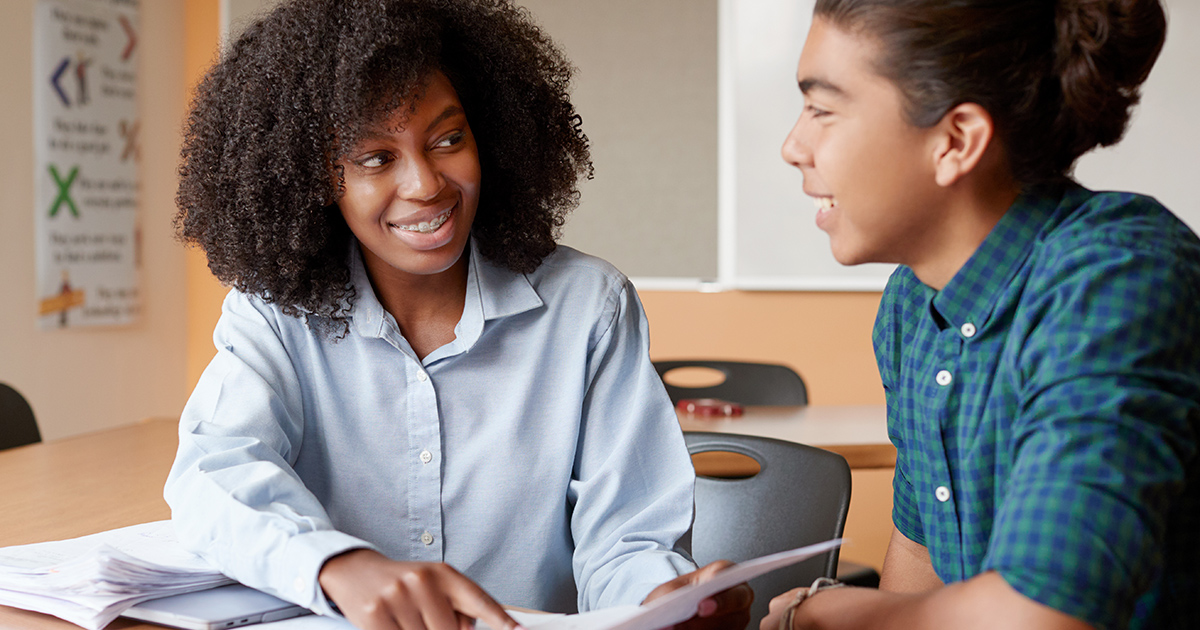New Findings Suggest "High-Dosage" Tutoring Can Improve Math Skills and Address Learning Loss

The University of Chicago Education Lab and MDRC have released preliminary findings from the first year of the Personalized Learning Initiative (PLI), a multiyear study of high-dosage tutoring for high school students (that is, tutoring that occurs several times a week with four or fewer students, throughout the whole school year). Research has highlighted the promise of high-dosage tutoring, and the intervention has earned the endorsement of U.S. Education Secretary Miguel Cardona.
Results from the 2022-2023 academic year suggest that tutoring can be expanded to more schools and students and can work, even in the aftermath of the pandemic. Across four sites, schools were best able to begin offering high-dosage tutoring when they incorporated it directly into the school day. At the two sites (Chicago and Fulton County, Georgia) where tutoring was evaluated with approximately 2,000 students, those who participated in tutoring saw large and positive gains on end-of-year test scores in math; the results for reading are not yet conclusive.
The PLI study is continuing partnerships with districts and schools in Illinois, Georgia, and New Mexico and has launched new partnerships during the 2023-2024 school year with school districts and charter schools in California, Florida, North Carolina, and South Carolina.
The expansion of the PLI study will allow for continued analysis of different types of tutoring programs, including varied student-to-tutor ratios, management practices, and student time with technology, as schools work to expand high-dosage tutoring programs. The project will also continue to release implementation and cost findings, detailing how tutoring was rapidly brought to a larger scale in different settings.
Latest News
Manhattan Institute





